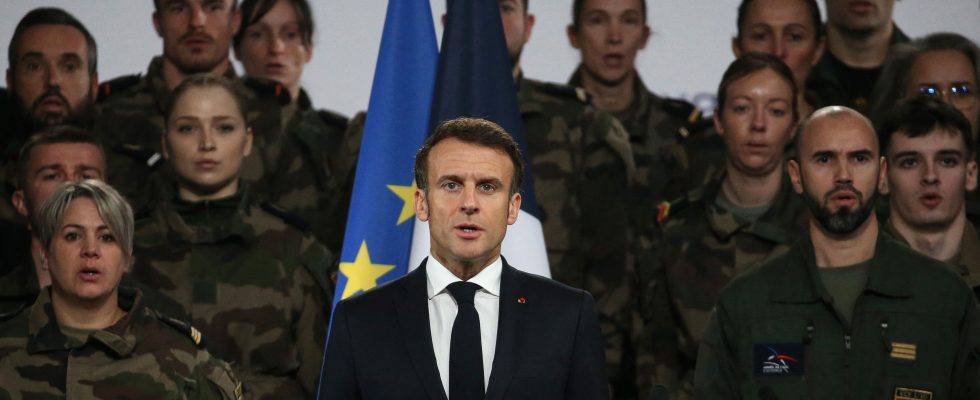The military programming law (LPM) for the years 2024 to 2030 is currently under discussion in the National Assembly. It provides for 413 billion euros of State commitment, that is to say about 100 billion more than the previous LPM. Sufficient to face the threats of tomorrow? General François Chauvancy (in the second section) expresses a doubt. On his blog, this expert on the question of the employment of forces, who is also a doctor in information sciences, regrets the choice of advanced technologies rather than that of an increase in the number of combatants. In light of the war in Ukraine, the former soldier in the army’s marine troops fears a false French strategic route. He explains it to The Express.
L’Express: On your blog, you criticize an LPM that is too favorable to the French “military-industrial complex”. Why use such an expression?
Francois Chauvancy: I note that if the Minister Sébastien Lecornu announced the recruitment of 6000 additional agents in the years to come, he did not say where. Neither the army nor the navy emerged strengthened from this text. On the other hand, means are put for the manufacture of drones, robots, weapons of tomorrow of high technology. This is why I speak of priority given to the military-industrial complex, to the industrialists to simplify. The commitment in favor of nuclear deterrence is also in their favour: it will feed the companies’ cutting-edge research teams. Realize: 13% of the LPM budget will be used for nuclear deterrence. It’s huge and I even think it’s too much.
The executive often replies that nuclear deterrence is the certainty of not being attacked on our territory, it is therefore a decisive and essential weapon for France…
Yes, of course, nuclear deterrence is necessary, but we are talking about proportions here. 13% of the budget, I think it’s too much. In the armed forces, the notion of “strict sufficiency” was invented a few years ago. Everything that is not essential is abandoned. Why would this principle not apply to nuclear deterrence? Do we really need 400 nuclear warheads? Couldn’t we have a little less and still be a deterrent? I think that if. And that would allow us to finance other expenditure items. The war in Ukraine reminds us that what makes the difference, today as yesterday, is always the masses. The number of soldiers, the number of equipment.
“We rely on NATO”
Precisely, the government considers that it would be wrong to imagine that France could engage as a belligerent in a conflict of the Ukrainian type. That French means must be adapted to the French context.
I think this speech is hypocritical. Ministerial offices theorize this to justify their budgetary choices. But ten years ago, who could have predicted that Russia would attack Ukraine? Today, we would be unable to fight for several weeks in a high intensity conflict, that is the truth. Is it so serious? France is part of NATO and has nuclear deterrence as a last resort. We rely on NATO. But NATO only works in the Atlantic part of the world. And that is to forget that the commitment of NATO countries is not automatic in all circumstances. I’m not just talking about the United States. Last January, the German government revealed that 950 of its soldiers, including reservists, refused to be deployed in a war zone. Not being able to fight in a high intensity conflict is a loss of influence for our country. It is only in Europe – in the United States, it is very different – that there is this form of demilitarization of minds. We say to ourselves: “we can’t intervene, it doesn’t matter”. But concerning our image in the rest of the world, the respect we are given is serious.
Regarding the protection of France’s maritime domain, do you think the investments are sufficient?
Neither. I absolutely understand that budget choices have to be made, that you can’t have everything. But three frigates to protect the world’s second largest maritime domain is not enough. 9,000 patrol boats is not enough, compared to China, which has ambitions, compared to other powers.
Many investments are planned to allow France to be influential in the war of tomorrow, in space, in intelligence, in cyber… What do you think?
We are putting big resources into waging the invisible war, very well. But we don’t put it on for the visible war. People talk to us all the time about Ukraine, but you have to look at what’s going on there: war is fought with men, many men. Russia has failed technologically at the moment, their investments have not brought them a considerable advantage. Even when looking at gear, like drones, the attrition rate is huge. Our strategy, driven by manufacturers, of ever more technological and therefore ever more expensive, is called into question. We need cheap equipment, which is mass produced.
